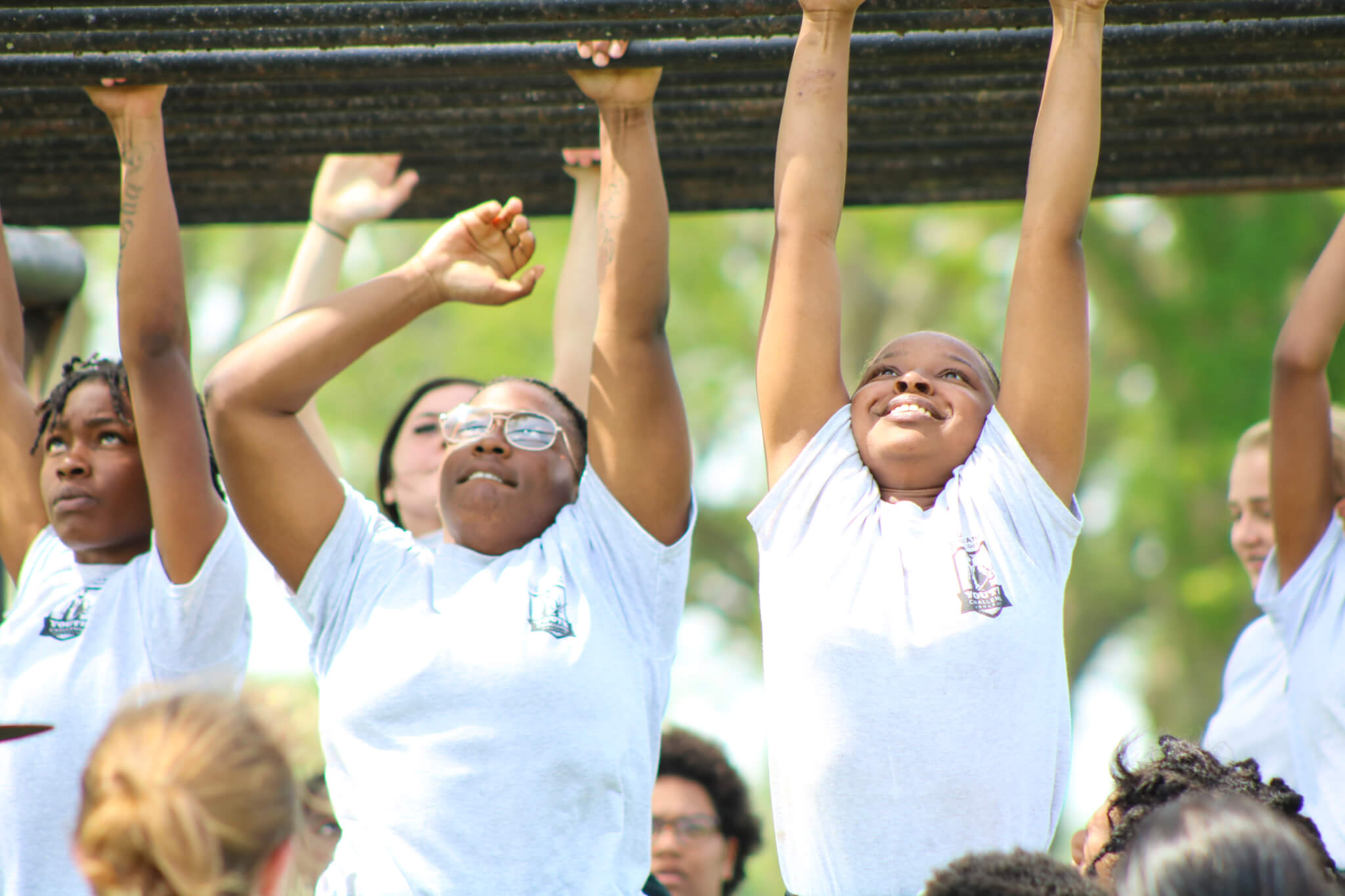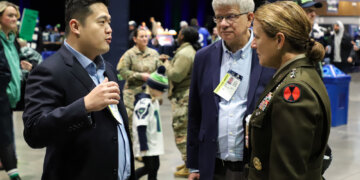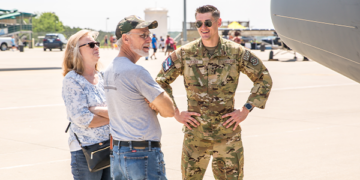When Grace Nichols’ teenaged son was finishing his junior year of high school in Oregon, he only had a freshman’s worth of credit. There was little hope of him graduating. Then he and his family heard of the National Guard Youth ChalleNGe program in their state and their hope was renewed. Nichols’ son not only completed the program, but he thrived in it. He even earned a scholarship from YC to attend a local junior college.
“After the five-month program, our son was confident, respectful, clear minded and more mature,” Nichols said. “My family also had more hope. He saw that he could change his life if he wanted to and worked hard.”
Since the inception of YC more than 25 years ago, it has graduated more than 170,000 graduates in 39 programs throughout the country. The voluntary 17.5-month program is designed to intervene and assist 16- to 18-year-old high school dropouts and at-risk students reclaim their lives by teaching educational and life skills components.

After a two-week acclimation phase to allow cadets the opportunity to learn how to live and operate in the quasi-military environment, they transition into the five-month residential program focused on teaching the eight core components of YC, which include academic excellence, employment skills, community service and health wellness.
During this time, they are also matched with an adult volunteer mentor from their hometown. The central focus for that relationship is the Cadet Achievement Plan or Post Residential Action Plan. This all leads to success in their placement performance during the final phase. The 12-month post-residential phase is when they return to their hometown, or wherever they are going, to pursue the goals they’ve set for themselves with the council of that mentor.
Since 2015, retired Air Force Brig. Gen. Allyson Solomon has been at the helm of the National Guard Youth Foundation, a nonprofit organization that advocates and supports YC.
“There is no denying that people with a high school diploma make more money in their lifetime and have a better quality of life,” Solomon said. “The ChalleNGe program is dedicated to positively influencing one cadet at a time by investing in their future success. By educating, training, mentoring to create productive, law-abiding, employed citizens.”
Louisiana has the largest YC in the country, graduating yearly about 15% of all YC graduates nationwide. The Louisiana Department of Education designated YC as an alternative program for Course Choice and Credit Recovery, allowing students to work towards a high school diploma. In 2018, graduates successfully earned college credit and technical certifications through partnerships between YC and local community colleges.
But it’s about more than academics. Retired Army Col. Michael Borrel, director of Educational Programs in the Louisiana National Guard, believes the program is important for multiple reasons, but especially for providing cadets with a secure environment.
“For many of our cadets, when they come to us, it is the first time they feel safe. They go to bed knowing no one is going to mess with them,” Borrel said. “They are getting a good night sleep, eating well, exercising and that all positively impacts their academics and life. This program is making a real difference for kids.”

Amy Steinhilber, director of the Washington Youth Academy in Bremerton, Washington, recently welcomed 161 cadets to campus on July 20, 2019.
“It’s about making structure out of chaos,” she said. “Our cadets have made mistakes; many have dealt with a myriad of life’s adversities at a young age. But this is a voluntary program and kids thrive in good peer pressure environments. We surround them with caring professional staff members, build their resilience and create a safe environment for them to gain confidence.”
Steinhilber cites the program’s success in its rising number of applicants and hopes to start a second program in Washington.
“Cadets are building a toolbox for life. It’s about character building, but it is also about catching up with school credit, which is the carrot that gets them here,” she said. “It’s heartbreaking to have to turn kids away because we just don’t have the bed space.”

When Nichols and her family moved from Oregon to Nevada, she was dismayed to learn the program that was so influential for her son was not available to other kids like him in her new home state. She teamed up with Heather Goulding, who’d she worked with on other projects, and the two became co-chairs of the Coalition for the Nevada National Guard Youth ChalleNGe program.
“Neither of us had any experience with the legislature, military, education, rural Nevada — where the facility was already built — Clark County — where the majority of our state population lives — state or military or federal budgets. We knew three of the 63 legislators. Sounds like a dream team, eh?” Nichols said. “But we were because we had hustle and passion for getting this bill passed.”
The Nevada governor signed the bill into law in 2019 and the first Nevada YC cadets are slated to arrive in January 2021.
“Heather and I plan to be there on the first day of the first class, to welcome the students and their families,” Nichols said. “Of course, we’ll be there at the graduations too, probably crying with everyone, swimming in all that beautiful hope filling the room.”
For more information about the National Guard Youth Foundation visit http://www.ngyf.org. Nichols also welcomes anyone interested in knowing more about Nevada’s YC program to email her at gracenicholsnv@gmail.com.
Read comments









































